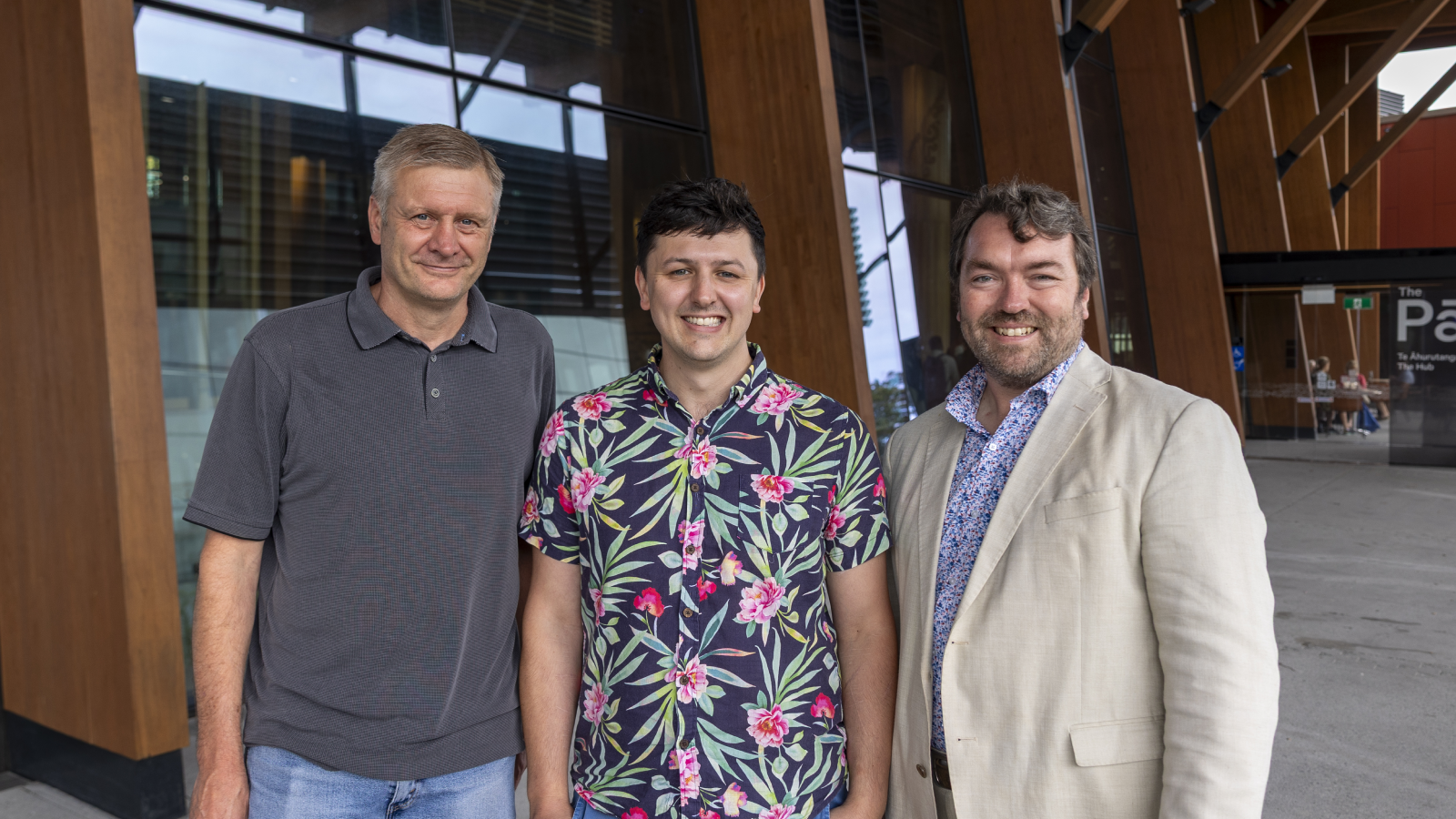
Rore Stafford. Credit: 26 Oketopa 2023 Ngā Kawepūrongo a Waatea | 11am - Waatea News: Māori Radio Station
The research, commissioned by the Ministry of Foreign Affairs and Trade (MFAT), includes kōrero with six esteemed Māori leaders to explore their thinking on the future of Pacific climate change mobility and Aotearoa.
Professor of Māori and Indigenous Studies, Sandy Morrison (Ngāti Whakaue, Ngāti Maniapoto, Ngāti Rārua), says the six kōrero collectively represent a unique start to a critical conversation.
“We know that Pacific peoples will be increasingly impacted by climate change, which may lead to higher levels of mobility. As Māori, we have many connections with our Pacific whānau, including shared whakapapa and trade partnerships. How can we respond to this important issue?
Due to proximity and the presence of family members already here, if climate change makes living in the Pacific too hard or too dangerous, Aotearoa will be a natural destination for many, particularly those coming from close nations like Tonga and Samoa. How can we better prepare our people, infrastructure, and services for this possible future? Importantly, what opportunities could we explore that could benefit all?”
Leaders within the study agreed that this was a crucial conversation, and further discussion and planning is needed, particularly between Māori, the Crown and Pacific peoples.
“Māori are well-positioned to support people in the Pacific, and the Crown cannot simply come to Māori with proposals on actions in this space. Māori should also work directly with Pacific leaders and people to identify their aspirations,” adds Professor Morrison.
Land rights activist, treaty negotiator and Director at Wakatū Inc, Rore Stafford, ONZM offered a values-based approach to the topic, and empathised with the pain Pacific peoples will likely face in future following dislocation from their lands.
“We don’t have a treaty with Pacific peoples, but we have whakapapa together and shared values. How do we manaaki people when they have had to move from their whenua, when they are suffering. We must be open to listening to what they need - they have their own mana. We must go back to all our values and our tikanga”.
One leader raised concerns about Pacific peoples vacating the Pacific and who may take their place, also highlighting risks to Pacific sovereignty and cultural and historical loss for those that may resettle in Aotearoa, noting that New Zealand has not been good at creating space for different cultures.
A number of the leaders saw their role as advocates for Pacific peoples, including providing practical support for housing, employment and business ownership. Iwi leader, Ngāhiwi Tomoana spoke on the need for a dramatic shift in Aotearoa New Zealand’s approach to the Pacific.
“The focus needs to shift from aid to supporting economic development so that when people eventually come to Aotearoa, they can develop their own economy, have their own developments, their own training and their own reason for being.”
The University of Waikato research team, including Professor Sandy Morrison, Dr Timote Vaioleti and Lora Vaioleti, are leading research and engagement in Tonga and Samoa, with several research outputs already completed and more to be released in the coming months.
The wider study also includes researchers from the University of Auckland and Mana Pacific Consulting and seeks to understand future climate change mobility in the Pacific.
Read Pacific Climate Change Mobility Research – Tonga and Samoa
About
A small team at the University of Waikato are leading a ground-breaking two-year project on the future of climate change mobility in the Pacific. This project has been commissioned by the New Zealand Ministry of Foreign Affairs and Trade (MFAT) and is enabled by New Zealand’s climate finance through the International Development Cooperation (IDC) Programme.
The project sits within an overall programme of work that commenced in late 2022 and covers nine Pacific nations (and their populations), and is being delivered by the University of Waikato, University of Auckland, and Mana Pacific Consulting. The team at the University of Waikato hold the contract for both Tonga (and Tongan people) and Samoa (and Samoan people) and Professor Sandy Morrison has also undertaken the Pou Māori role for the programme as a whole.
The University of Waikato research team includes Professor Sandy Morrison, Dr Timote Vaioleti and Lora Vaioleti.
This product, titled Six Kōrero, included conversations with six Māori leaders. These include:
Rore Stafford, ONZM, Ngāti Maniapoto, Ngāti Rārua, Ngāti Tama, Director at Wakatū Inc; Managing Director of Rore Lands.
Linda Tuhiwai Te Rina Smith, CNZM, Ngāti Awa, Ngāti Porou, Distinguished Professor at Te Whare Wānanga o Awanuiārangi.
Te Poa Karoro (Paul) Morgan, CNZM, QSO, Ngāti Rārua, Te Mahurehure, Ngā Puhi. Entrepreneur, trustee at the New Zealand China Council, former Chair at Wakatū Inc., former Chief Executive of the Federation of Māori Authorities.
Ngahiwi Tomoana, Ngāti Kahungunu (Ngāti Hawea, Ngāti Hori). Chair Ngāti Kahungunu.
Aimee Kaio: Ngāi Tahu, Te Arawa, Ngā Puhi, Research and Innovation Director, Ngāi Tahu.
Jason Mika, Tūhoe, Ngāti Awa, Whakatōhea, Ngāti Kahungunu, Professor at Te Raupapa
Waikato Management School and Te Kotahi Research Institute, University of Waikato



